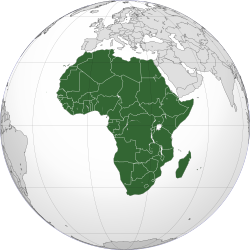
Africa's Digital Surge Gains Pace Amid Rising Security Signals

Africa is entering a phase of accelerated digital inclusion, backed by substantial investment and strategic partnerships, yet persistent infrastructure and cybersecurity gaps pose growing concerns. The World Bank Group recently co-chaired the launch of the Mobilizing Access to the Digital Economy Alliance: Africa, aimed at bringing 100 million individuals and enterprises online by 2034.
According to the World Bank's data, broadband access across Africa rose from 26 per cent in 2019 to 36 per cent in 2022 - evidence of tangible progress in closing the digital divide. At the same time, the World Bank underscores the need for stronger cybersecurity frameworks and data-protection mechanisms to avoid undermining the gains in connectivity.
In the agricultural sector, the MADE Alliance project is supporting farmers in Tanzania and Kenya with digital tools and training. In Tanzania, sunflower farmers have been equipped with payment tools; in Kenya, high-speed internet and digital-skills training have reached around 10,000 farmers and their communities.
The broader regional programme, Inclusive Digitalization in Eastern and Southern Africa Programme, funded through a US$2.48 billion envelope, will target 15 countries over eight years - beginning with Angola, the Democratic Republic of Congo and Malawi - to expand access to the internet, digital services and inclusion.
But despite these advances, major structural hurdles remain. A 2023 World Bank study of 48 Sub-Saharan African nations found that only one in four people had internet access and only one in ten had a computer, while mobile-phone access was far higher. Access disparities persist: people in the richest quintile are fifteen times more likely to have a computer than those in the bottom quintile.
See also Ethiopia and Italy Commence €1.7 Million Initiative for Tigray Heritage RevivalOn the security front, the financial-services sector has been flagged by the bank for higher vulnerability. A sector overview highlights the risks of outsourcing IT and cybersecurity functions - which, while helping capacity constraints, also exposes firms to significant threats.
A wide-ranging governance review emphasises that without proper regulatory frameworks - in areas such as procurement transparency, data-privacy, competition policy and state-linked digital enterprises - the full benefits of connectivity will be difficult to achieve.
Infrastructure investment remains immense. According to the World Bank, achieving universal broadband in low-income countries will require more than US$400 billion by 2030. The International Finance Corporation, the World Bank's private-sector arm, recently committed US$100 million to Raxio Group to build large-scale data-centres across Africa, spanning Ethiopia, Angola, Ivory Coast, Mozambique, DRC, and Uganda. The deal highlights the scale of demand - Africa currently holds less than 1 per cent of global data-centre capacity, despite mobile-data usage rising by nearly 40 per cent annually.
But the rush to digitise brings a sharper risk profile. An academic study analysing IoT vulnerabilities across the continent found that 69.8 per cent of exposed devices had documented vulnerabilities, with higher risk rankings in countries such as South Africa, Tunisia, Morocco, Egypt and Nigeria.
For policymakers and development partners, the task is therefore two-fold. On the one hand, they must scale up connectivity, digital skills, platform access and digital government services - via initiatives like DE4A and IDEA. On the other hand, they must ensure that the growth of digital infrastructure is matched by robust cybersecurity, data-protection, regulatory oversight and human-capital development.
See also Kenya Slashes Key Rate Again as Inflation Stays TameIn practice, the focus is shifting from 'getting online' to 'being safe and productive online'. As one World Bank digital-strategy overview notes:“Even as new technologies spread rapidly around the world, billions of people have still never used the internet... As the world is going digital, safeguarding capacity in areas like cybersecurity and personal-data protection has become more important than ever.”
The MADE Alliance and similar frameworks underscore that digital transformation must be contextualised: in agriculture, in small-business ecosystems, in rural communities. The policy toolkit published by the bank for digital entrepreneurship highlights six modules - including market regulation, local intermediary organisations, and spatial economics - to help nations build digital-business ecosystems.
Some African governments are responding. For example, the DRC's Digital Transformation Project under IDEA will mobilise private-sector investment, expand connectivity and strengthen digital-skills training for youth, underlining that digital inclusion is increasingly seen as an investment in competitiveness and human capital.
Still, analysts warn that infrastructural improvements alone are insufficient. Unless affordability, digital literacy and usage gaps are addressed, many countries risk replicating old divides in a digital form. For instance, mobile-money account adoption has soared in some countries, but large equity gaps remain in account ownership among women, rural residents and poorer households.
Notice an issue? Arabian Post strives to deliver the most accurate and reliable information to its readers. If you believe you have identified an error or inconsistency in this article, please don't hesitate to contact our editorial team at editor[at]thearabianpost[dot]com. We are committed to promptly addressing any concerns and ensuring the highest level of journalistic integrity.
Legal Disclaimer:
MENAFN provides the
information “as is” without warranty of any kind. We do not accept
any responsibility or liability for the accuracy, content, images,
videos, licenses, completeness, legality, or reliability of the information
contained in this article. If you have any complaints or copyright
issues related to this article, kindly contact the provider above.


















Comments
No comment